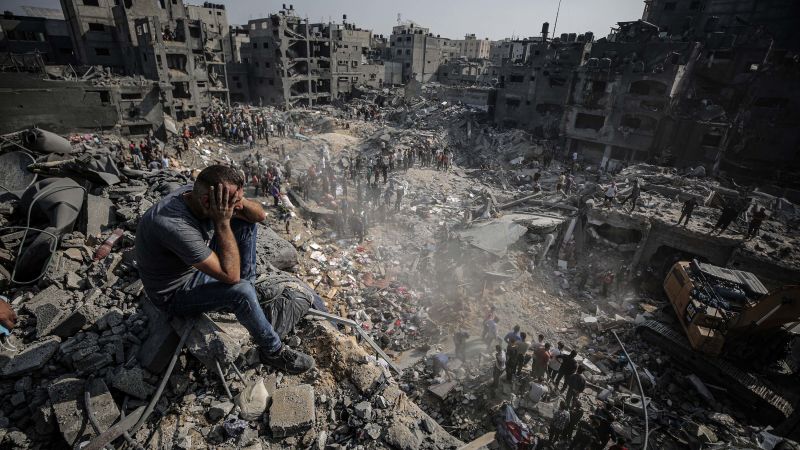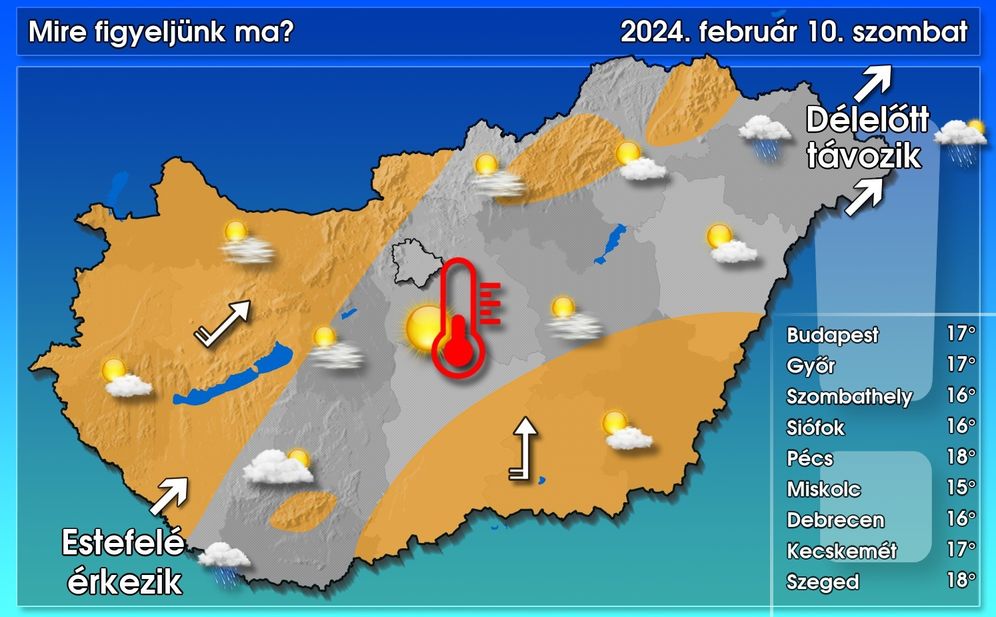Israel Fears Encirclement Amidst Trump's Iran Negotiations

Table of Contents
The Iranian Nuclear Threat and Regional Proxies
The perceived threat posed by Iran's nuclear program looms large in Israel's security calculations. The potential acquisition of nuclear weapons by Iran would dramatically alter the regional power balance, significantly impacting Israel's national security. This fear is further compounded by Iran's expanding network of regional proxies, including Hezbollah in Lebanon and Hamas in Gaza. These groups, armed and supported by Iran, possess considerable military capabilities that pose a direct threat to Israel.
- Increased missile accuracy and range: Iran's ballistic missile program has seen significant advancements, increasing the accuracy and range of its missiles, allowing for strikes deeper into Israeli territory.
- Growth of sophisticated weaponry: Iran's proxies are increasingly equipped with sophisticated weaponry, including precision-guided munitions and advanced anti-tank systems, enhancing their offensive capabilities.
- Enhanced cross-border operations capabilities: Hezbollah, in particular, has demonstrated a capacity for complex cross-border operations, posing a significant threat to Israeli infrastructure and civilian populations.
- Potential for escalation in conflict: The potential for a multi-front war, involving simultaneous attacks from multiple proxies, is a major concern for Israel, significantly straining its military resources and preparedness.
Israel's military maintains a high state of readiness, but the possibility of a multi-front war fueled by Iranian-backed groups presents a daunting challenge, pushing Israel's military preparedness to its limits and emphasizing the urgency of addressing the underlying issues.
Shifting Geopolitical Dynamics in the Middle East
The shifting geopolitical landscape in the Middle East significantly impacts Israel's strategic position and contributes to its fears of encirclement. Changing alliances and power dynamics create a more complex and potentially hostile environment. The potential for increased cooperation between Iran and other regional actors against Israel is a growing concern.
- Turkey's evolving relationship with Iran: Turkey's increasingly close ties with Iran raise concerns about potential support for Iranian activities in the region, potentially creating a new axis against Israel.
- Syria's ongoing conflict and Iranian influence: The Syrian civil war has allowed Iran to establish a strong military presence in Syria, bordering Israel, significantly enhancing its ability to project power and influence.
- The role of Russia and other global powers: The involvement of Russia and other global powers in the region further complicates the situation, potentially creating opportunities for Iranian expansion and increasing Israel's sense of vulnerability.
These geopolitical shifts contribute significantly to Israel's perception of encirclement, as it faces a more interconnected and potentially hostile network of actors aligned against its interests.
The Trump Administration's Iran Policy and its Perceived Shortcomings
The Trump administration's approach to Iran and the resulting nuclear deal negotiations have significant implications for Israel. While the administration's tough stance on Iran was initially welcomed in Israel, concerns remain about potential shortcomings in any new agreement. Israel expresses serious apprehension about the potential for a less stringent nuclear deal, one that might not adequately address the Iranian threat.
- Concerns over insufficient sanctions: There are concerns that sanctions against Iran might be insufficient to curb its nuclear ambitions and regional influence.
- Lack of focus on Iranian regional influence: A sole focus on the nuclear program without addressing Iran's regional proxies and destabilizing activities may leave Israel vulnerable.
- Potential for a weaker verification mechanism: A weaker verification mechanism in any new agreement could allow Iran to secretly pursue its nuclear program, increasing the threat to Israel.
These perceived shortcomings in the Trump administration's Iran policy could significantly increase Israel's vulnerability and reinforce its fears of encirclement, highlighting the need for a robust and comprehensive strategy.
Conclusion
Israel's fears of encirclement are deeply rooted in a complex web of factors: Iran's nuclear ambitions, its network of regional proxies, and the evolving geopolitical landscape. The perceived weaknesses in the Trump administration's Iran policy further exacerbate these anxieties, emphasizing the urgent need for a comprehensive strategy to address this multifaceted threat. Understanding Israel's perspective on encirclement and the dynamics of Iran's regional influence is critical for navigating the complexities of the Middle East and preventing future escalation. Continued, vigilant monitoring of Israel's security concerns and the evolving situation regarding Iran's nuclear program is absolutely essential.

Featured Posts
-
 Magyarorszag Idojarasjelentes Csapadek Es Meleg Tavaszi Homerseklet
May 31, 2025
Magyarorszag Idojarasjelentes Csapadek Es Meleg Tavaszi Homerseklet
May 31, 2025 -
 Hospitalization Of Former Nypd Commissioner Bernard Kerik Full Recovery Anticipated
May 31, 2025
Hospitalization Of Former Nypd Commissioner Bernard Kerik Full Recovery Anticipated
May 31, 2025 -
 Indian Wells 2024 Swiatek Advances Rune Upsets Tsitsipas
May 31, 2025
Indian Wells 2024 Swiatek Advances Rune Upsets Tsitsipas
May 31, 2025 -
 March 26th Remembering Prince And The Fentanyl Report
May 31, 2025
March 26th Remembering Prince And The Fentanyl Report
May 31, 2025 -
 Solve The Nyt Mini Crossword Saturday May 3rd Clues And Answers
May 31, 2025
Solve The Nyt Mini Crossword Saturday May 3rd Clues And Answers
May 31, 2025
